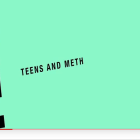
New Jersey Sexting Bill Stresses Education Over Prosecution for Teens
|
A bill moving through the New Jersey Legislature would force kids caught sending sexually explicit photographs and videos through their cell phone to attend an intense education program rather than face prosecution. The measure, A-1561, passed the Assembly 78-to-0 in March and now moves to the state Senate for final approval. “Sexting,” as the practice is known popularly, has recently been in the news thanks to U.S. Rep. Anthony Weiner (D-NY) who was caught sending lewd photos of himself to female constituents. As JJIE.org reported recently, Weiner will likely face fewer consequences than many teens found sexting, who may face child pornography charges. “Teens need to understand the ramifications of their actions, but they shouldn’t necessarily be treated as criminals,” Assemblywoman Pamela Lampitt (D-Camden), a co-sponsor, told NewJerseyNewsroom.com. The education program would teach participants about the possible legal and social consequences of sexting. Juveniles who successfully complete the education program would not face trial. A second co-sponsor, Assemblywoman Celeste Riley (D-Cumberland), said the measure would help kids who make a mistake not “pay for it in court.”








